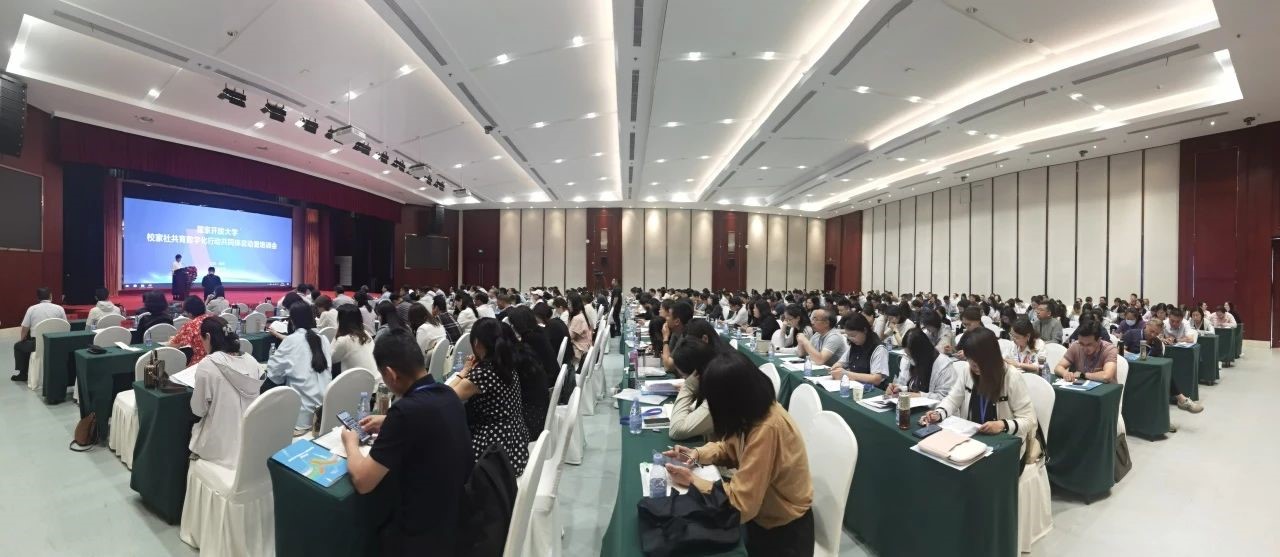 In a move to actualize the directives of the Ministry of Education's nation-wide promotion for collaborative education among schools, families, and societies and to firmly root and cultivate the robust growth of the School-Family-Society Digital Action Community, the Open University of China (OUC) orchestrated the launch and workshop event in Nanjing on 3 June 2024.
In a move to actualize the directives of the Ministry of Education's nation-wide promotion for collaborative education among schools, families, and societies and to firmly root and cultivate the robust growth of the School-Family-Society Digital Action Community, the Open University of China (OUC) orchestrated the launch and workshop event in Nanjing on 3 June 2024.
Distinguished attendees included Lyu Yugang, former director of the Department of Basic Education under the Ministry of Education and the executive vice president of the Chinese Society of Education; Gu Yuehua, a member of the Party Committee and deputy director of the Jiangsu Provincial Education Department; alongside Zhou Tianming, vice president of the OUC.
Participants from across the nation, including 213 kindergartens and schools from 18 provinces (autonomous regions), representatives from 28 local open universities, and officials from 32 local education bureaus, education technology centres, educational research institutes, teacher development organisations, education evaluation agencies, community groups, various social education bodies, and higher education institutions, amounted to 273 entities with 315 delegates taking part in this significant gathering.

Scene from the workshop
This event received substantial backing from the Jiangsu Provincial Education Department and the Nanjing Municipal Government. Leading by example, the Jiangsu Provincial Education Department spearheaded and propagated digital initiatives across the region for collaborative education between schools, families, and communities. They gathered all 131 digitally exemplar schools and kindergartens for school-family-society collaborative education in the province at this event. This brought together the pioneers of the "School-Family-Society Digital Action Community" for an opportunity to share insights, learn from each other and drive forward the digitalisation of collaborative education efforts collectively.
With a strong sense of social responsibility and a mission to contribute to building a leading nation in education, the OUC has leveraged its advantages in educational digitalisation to launch the School-Family-Society Digital Action initiative. This initiative aims to harness digital technologies to establish and enhance a collaborative education mechanism among schools, families, and society. It addresses the challenges of insufficient educational resources and guidance, as well as the lack of collaborative efficiency in advancing school-family-society education.
The initiative promotes the interactive and integrated development of school education, family education, and social education. By cultivating a high-quality digital ecosystem for collaborative education, it aims to create a work pattern that is trusted by parents, welcomed by schools, and recognised by society. The School-Family-Society Digital Action is a proactive effort by the OUC to advance educational digitalisation and build a learning society and country where lifelong learning is pursued by all.
The action targets the school system and communities, striving to ensure high-quality collaborative education. It seeks to advance the scientific approach to content, systematic work methods, and professional talent teams. Additionally, it aims to explore long-term collaboration mechanisms and establish regular collaborative education practices.
Key tasks include sharing high-quality projects, deploying exclusive platforms, conducting professional training, establishing parent schools, safeguarding mental health, and selecting distinctive resources. The Community will organise experts to develop guidelines for digital parent schools and community family education service sites, as well as an evaluation system for family education guidance services in schools (kindergartens), communities, and counties (districts). Utilizing big data analysis, it will create a performance list for family education guidance services development, promoting innovative advancements in digital collaborative education across various regions.
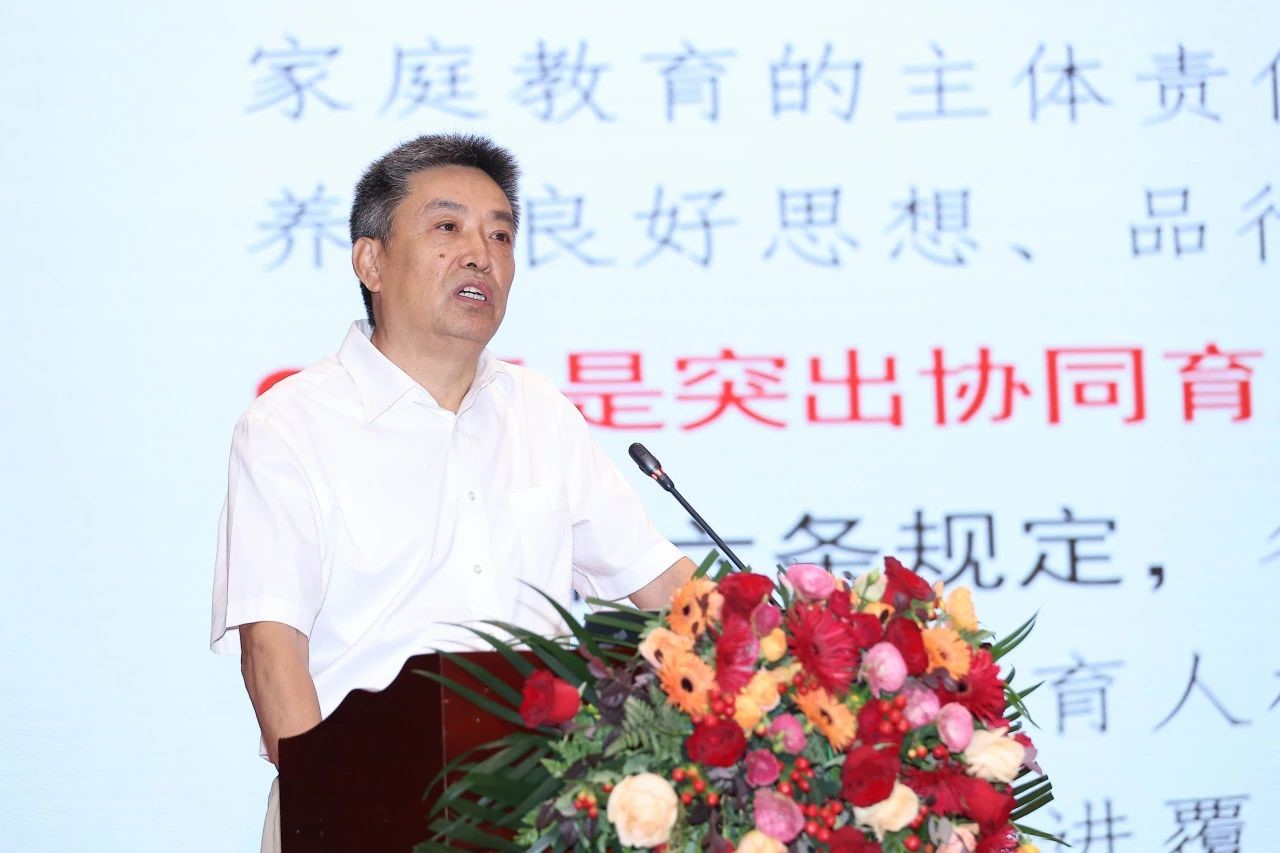
Lyu Yugang's interpretation of "Opinions on Improving the School-Family-Society Collaborative Education Mechanism."
Lyu Yugang provided a comprehensive and detailed interpretation of the "Opinions on Improving the School-Family-Society Collaborative Education Mechanism" and offered guidance on advancing the School-Family-Society Digital Action. He emphasised that digital empowerment is a crucial strategic breakthrough in promoting collaborative education among schools, families, and society. The OUC holds dual advantages in digitalisation and system-based education, along with professional capabilities and abundant resources for advancing collaborative education. Selecting Jiangsu Province as a pioneering area serves an important demonstrative role.
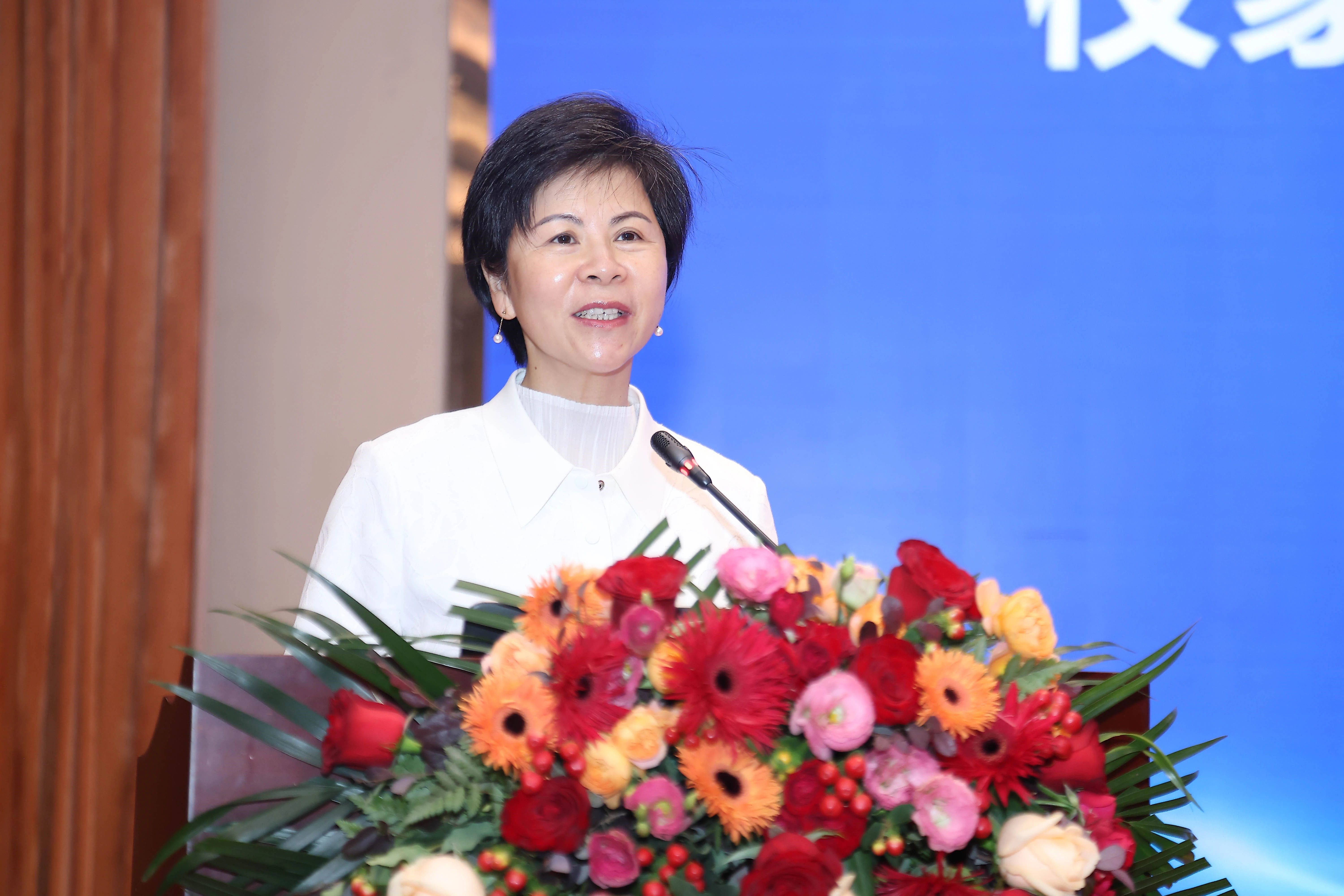
Gu Yuehua delivered a speech.
Gu Yuehua delivered a speech in which she noted the OUC's launch of the School-Family-Society Digital Action as a crucial step toward realising the development of a family education guidance service system and enhancing the collaborative mechanism involving schools, families, and communities. This initiative, she posited, would significantly contribute to the deeper evolution of family education. She outlined three key areas of focus: first, fostering collaborative education efforts, actively addressing societal concerns, and ensuring the School-Family-Society Digital Action is effectively implemented. Second, developing a model for joint educational efforts that supports school development from within and establishes a distinctive identity in co-education between schools and families, facilitated by digital capabilities. Third, seizing the School-Family-Society Digital Action as a catalyst, she advocated for the active training of teachers in guiding family education and enhancing parental skills, thereby fostering a nurturing family and social environment for the well-being and growth of young students.
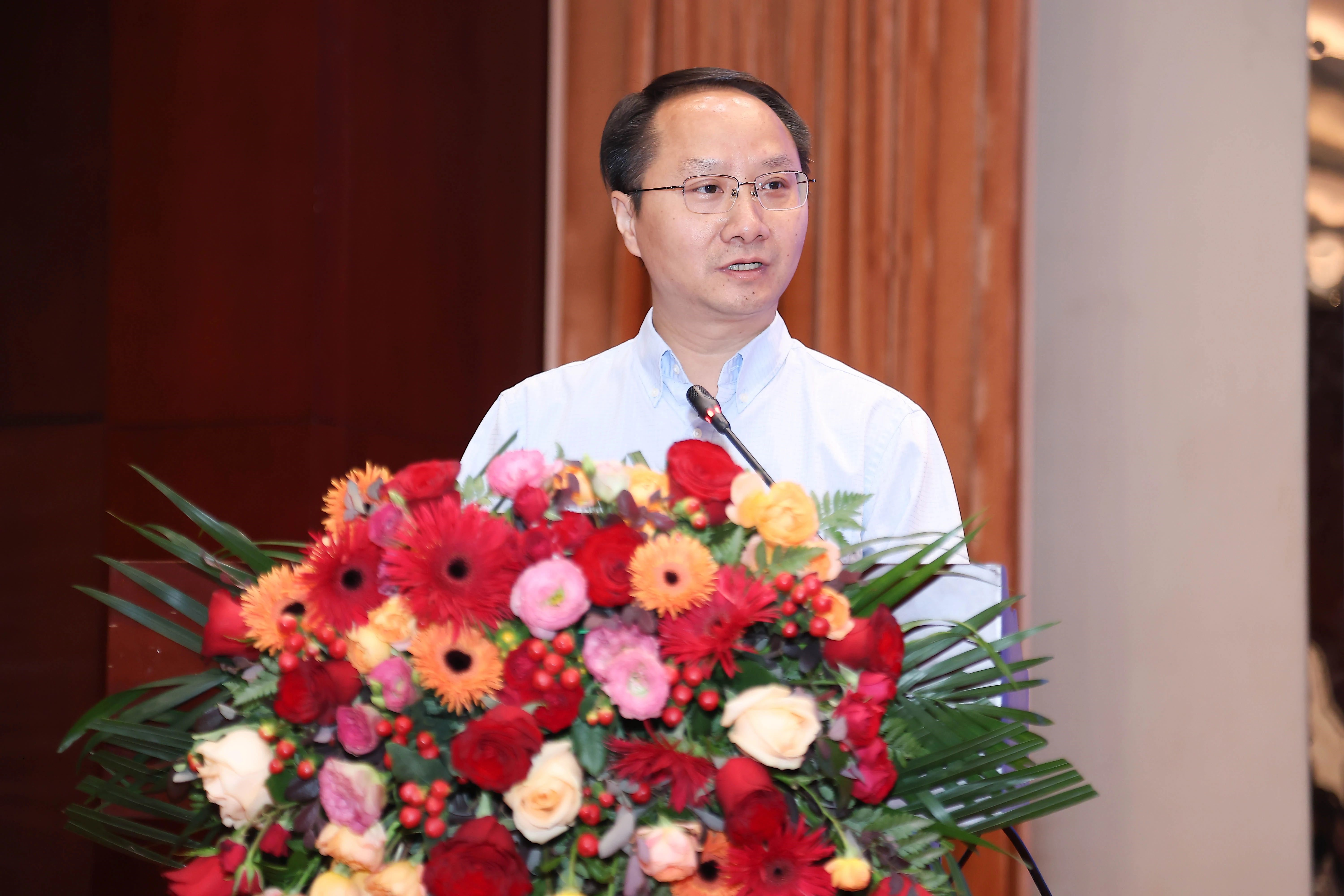
Zhou Tianming delivered a speech.
Zhou Tianming expressed that the OUC would fully utilize its digital capabilities and systematic approach to education, committing to sincere collaboration with all partners to further the School-Family-Society Digital Action. This initiative aims to nurture a high-quality digital ecosystem for collaborative education amongst schools, families, and communities, thus making a unique contribution to carving out new mechanisms and patterns for cooperative education. Additionally, it seeks to facilitate the innovative development and integration of family education with community, elderly education, and societal training, steering and accelerating the quality improvement of non-degree education within the OUC’s education system.
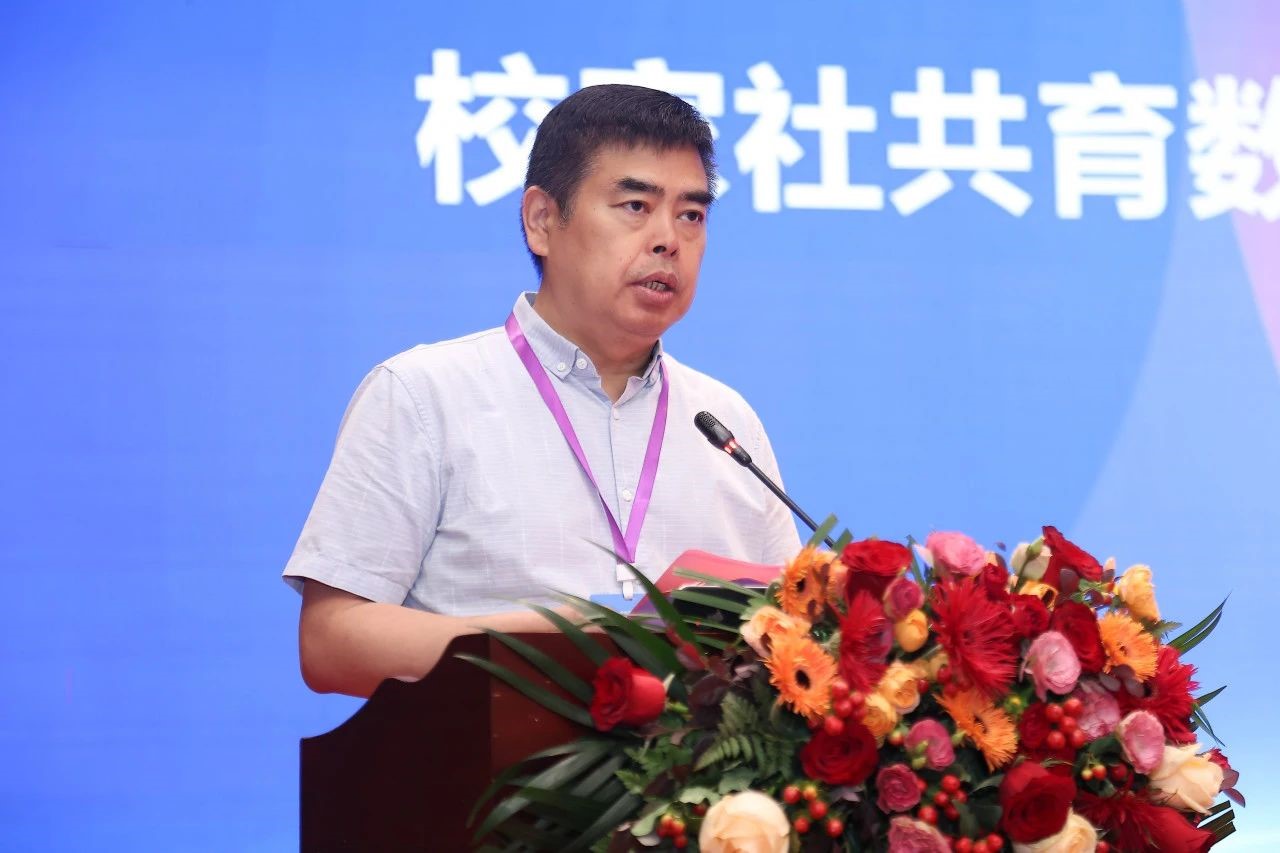
Wang Qifu introduced the working plan.
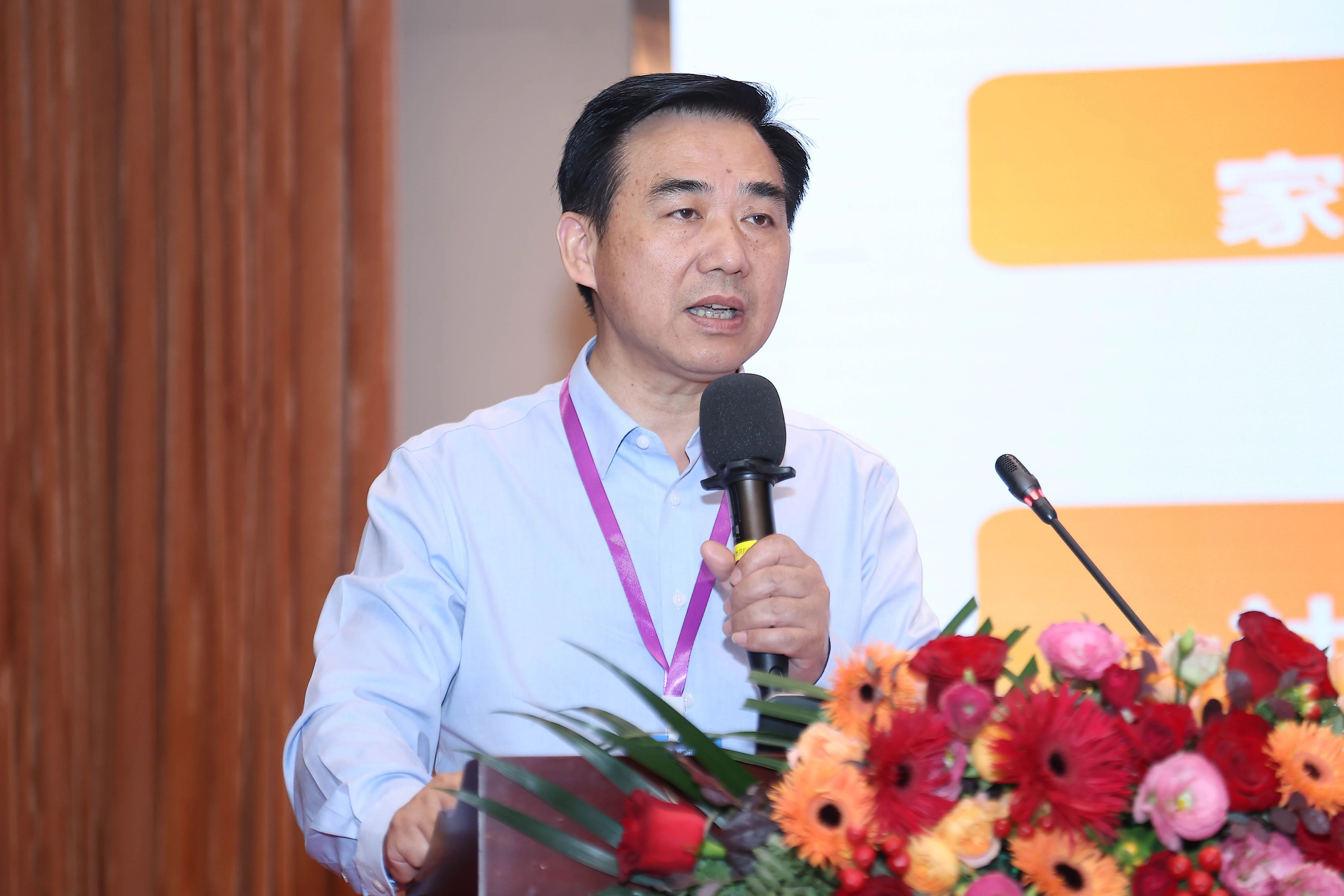
Gu Chunming shared insights and experience from Jiangsu.
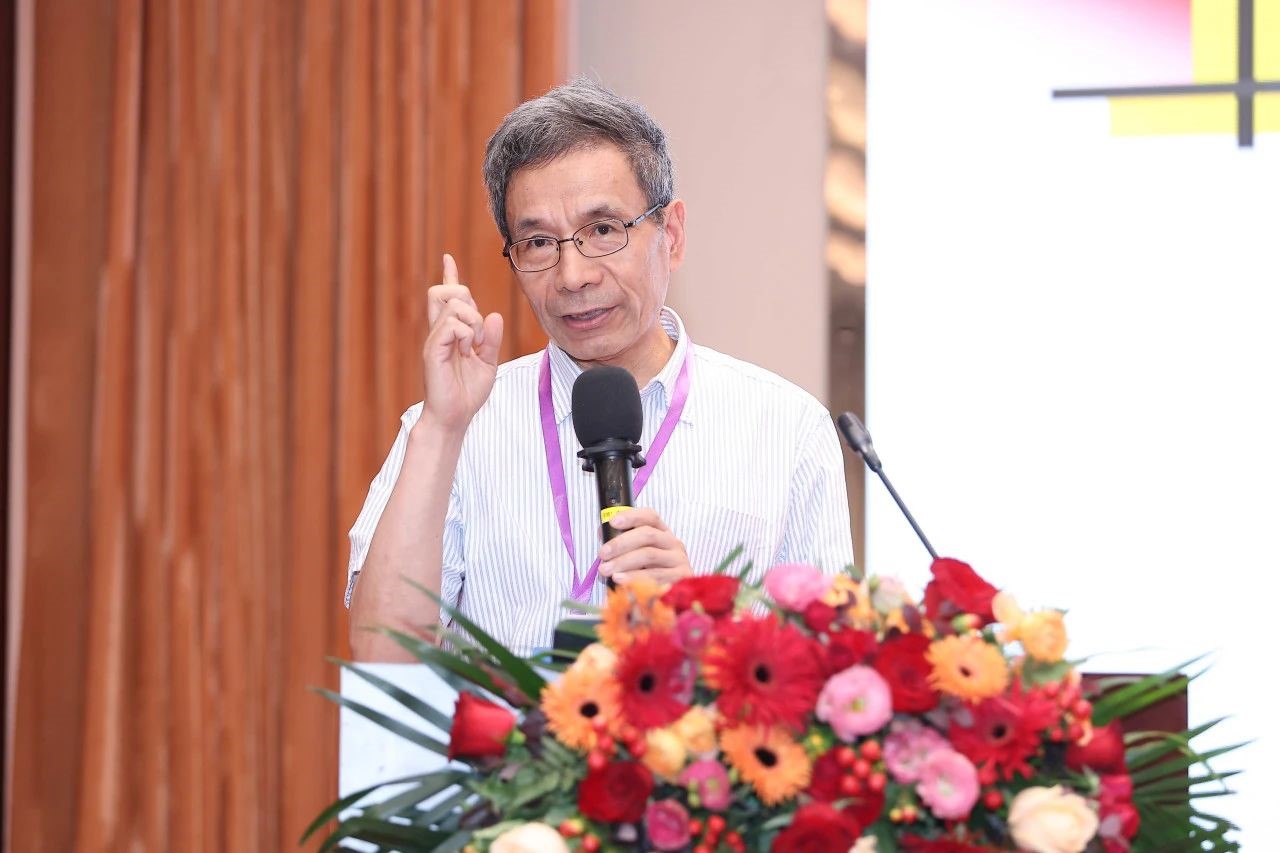
Xu Yuqian delivered a specialised report.
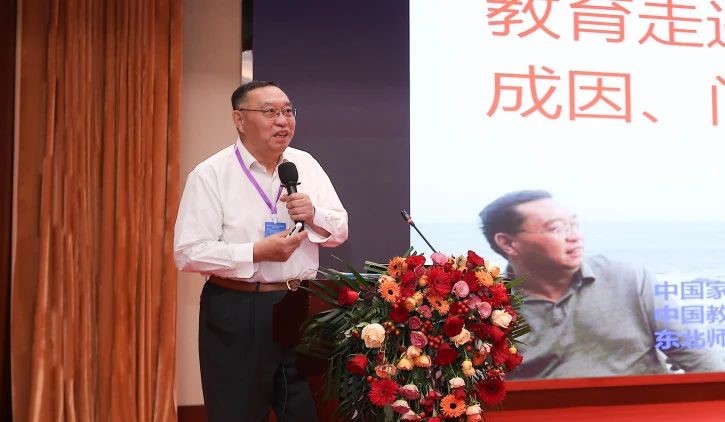
Zhao Gang delivered a specialised report.
Wang Qifu introduced the working plan for the School-Family-Society Digital Action along with an overview of the service system. Gu Chunming shared insights and experiences from Jiangsu, highlighting the effectiveness of digital empowerment in fostering collaboration between schools, families, and communities, as well as outlining plans for future advancements. Xu Yuqian, a professor at the National Academy of Education Administration and the director of the Education Committee of the China Volunteers Association, along with Zhao Gang, a professor at Northeast Normal University, delivered specialised reports on the intersection of family education and collaborative societal efforts, identifying challenges, and proposing strategies for future progress.
The conference attendees unanimously acknowledged the timeliness and value of the meeting, recognising it as a crucial platform for exchanging ideas and learning from each other regarding collaborative efforts among families, schools, and communities for education.
By Wang Qifu, OUC